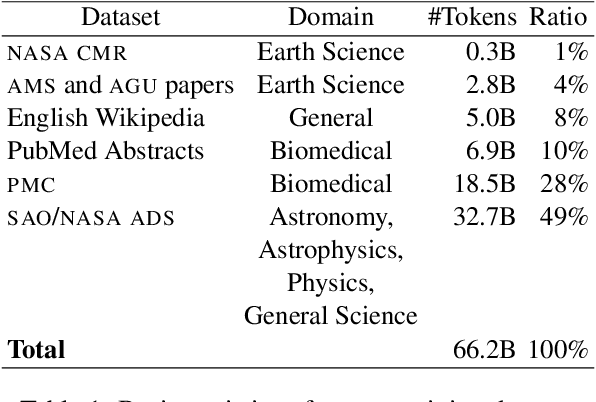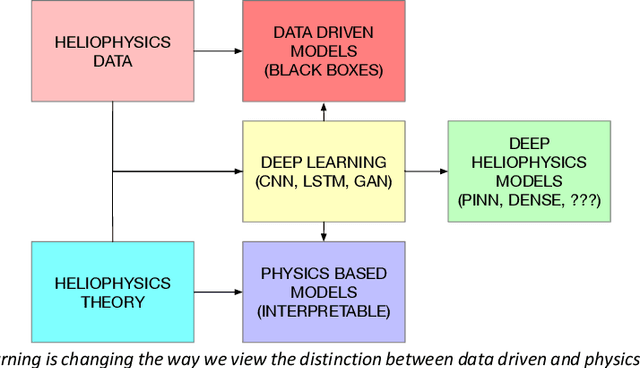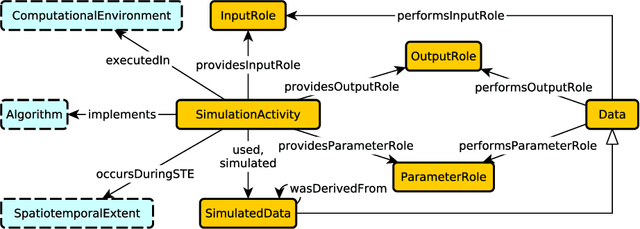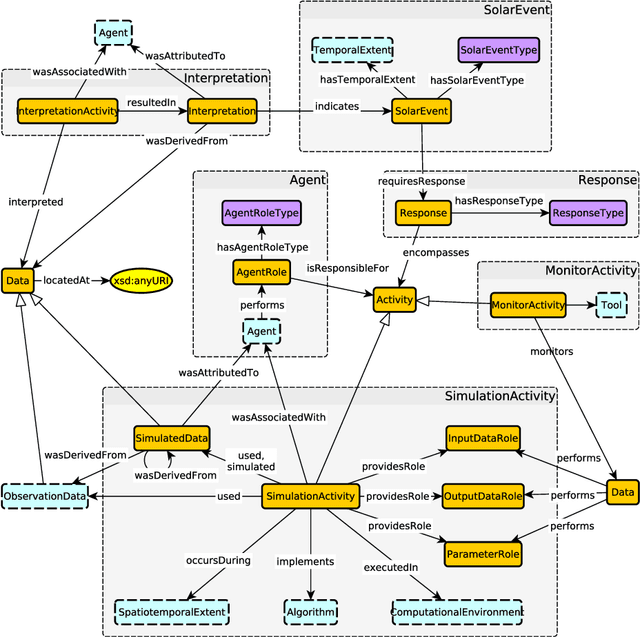Ryan McGranaghan
INDUS: Effective and Efficient Language Models for Scientific Applications
May 17, 2024



Abstract:Large language models (LLMs) trained on general domain corpora showed remarkable results on natural language processing (NLP) tasks. However, previous research demonstrated LLMs trained using domain-focused corpora perform better on specialized tasks. Inspired by this pivotal insight, we developed INDUS, a comprehensive suite of LLMs tailored for the Earth science, biology, physics, heliophysics, planetary sciences and astrophysics domains and trained using curated scientific corpora drawn from diverse data sources. The suite of models include: (1) an encoder model trained using domain-specific vocabulary and corpora to address natural language understanding tasks, (2) a contrastive-learning-based general text embedding model trained using a diverse set of datasets drawn from multiple sources to address information retrieval tasks and (3) smaller versions of these models created using knowledge distillation techniques to address applications which have latency or resource constraints. We also created three new scientific benchmark datasets namely, CLIMATE-CHANGE-NER (entity-recognition), NASA-QA (extractive QA) and NASA-IR (IR) to accelerate research in these multi-disciplinary fields. Finally, we show that our models outperform both general-purpose encoders (RoBERTa) and existing domain-specific encoders (SciBERT) on these new tasks as well as existing benchmark tasks in the domains of interest.
Deep Learning for Space Weather Prediction: Bridging the Gap between Heliophysics Data and Theory
Dec 27, 2022
Abstract:Traditionally, data analysis and theory have been viewed as separate disciplines, each feeding into fundamentally different types of models. Modern deep learning technology is beginning to unify these two disciplines and will produce a new class of predictively powerful space weather models that combine the physical insights gained by data and theory. We call on NASA to invest in the research and infrastructure necessary for the heliophysics' community to take advantage of these advances.
Towards a Modular Ontology for Space Weather Research
Sep 28, 2020


Abstract:The interactions between the Sun, interplanetary space, near Earth space environment, the Earth's surface, and the power grid are, perhaps unsurprisingly, very complicated. The study of such requires the collaboration between many different organizations spanning the public and private sectors. Thus, an important component of studying space weather is the integration and analysis of heterogeneous information. As such, we have developed a modular ontology to drive the core of the data integration and serve the needs of a highly interdisciplinary community. This paper presents our preliminary modular ontology, for space weather research, as well as demonstrate a method for adaptation to a particular use-case, through the use of existential rules and explicit typing.
Machine Learning in Heliophysics and Space Weather Forecasting: A White Paper of Findings and Recommendations
Jun 22, 2020Abstract:The authors of this white paper met on 16-17 January 2020 at the New Jersey Institute of Technology, Newark, NJ, for a 2-day workshop that brought together a group of heliophysicists, data providers, expert modelers, and computer/data scientists. Their objective was to discuss critical developments and prospects of the application of machine and/or deep learning techniques for data analysis, modeling and forecasting in Heliophysics, and to shape a strategy for further developments in the field. The workshop combined a set of plenary sessions featuring invited introductory talks interleaved with a set of open discussion sessions. The outcome of the discussion is encapsulated in this white paper that also features a top-level list of recommendations agreed by participants.
 Add to Chrome
Add to Chrome Add to Firefox
Add to Firefox Add to Edge
Add to Edge